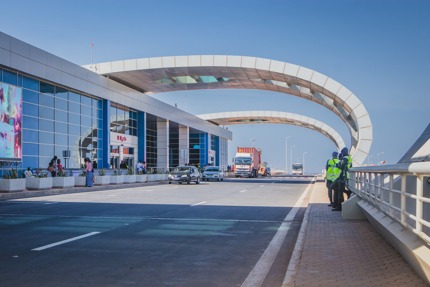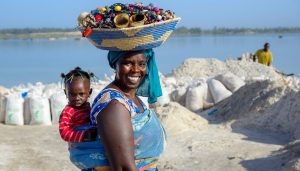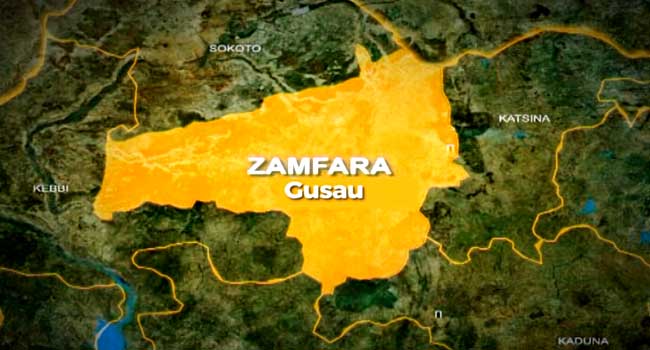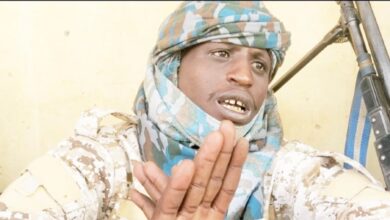What you need to know before travelling to Senegal

Palm-fringed beaches, colourful cities and a reputation for world-class hospitality, Senegal deserves a spot on any seasoned traveller’s bucket list. Located at the westernmost point of the Africa continent, Senegal is known as the “Gateway to Africa” and has been welcoming travelers from Europe and the Americas for centuries. This peaceful sub-Saharan country has always flown beneath the tourism radar and that’s everyone’s loss. Not only is it one of the continent’s safest and most accessible countries, it’s also blessed with a rich culture, dreamy beaches and some of the best wildlife-spotting opportunities you’ll find anywhere in Africa.

You will be amazed that there are about 48 African countries you can travel to without a visa or even with an e-visa or visa on arrival as a Nigerian.

Do you know that Senegal is a visa free country for Nigerians? Yes, you read that right. You don’t need a visa to travel to Senegal. All you need is your passport.
Senegal is a country located in the western region of Africa whose capital is Darkar. It is popularly known as the ‘Gateway to Africa’. Senegal is a country with an average population of 17.14 million as of 2022.
The people of Senegal are usually referred to as Senegalese. There are about seven main ethnic groups—Wolof, Tukulor, Serer, Malinke, Diola and Soninke. The country is majorly dominated by the Wolof ethnic group. They make up about half of the population.
This African country speaks 39 languages, with French as its main official language. Wolof is the most popular and widely spoken language in Senegal. Only a few Senegalese speak French. If you have plans to visit or relocate to Senegal, you must be able to speak French or Wolof fluently. This will save you from communication problems, especially if you will be staying there for a long time.
Senegal has mostly Muslims. This religion is practiced through the involvement of groups which is usually referred to as brotherhood. The Qadiri, the Tijani, and the Mourides are the three brotherhoods in Senegal. Christianity is also practiced but by a small population.
Senegal is a member of ECOWAS (Economic Community of West African States). As a result of this membership, 14 other member states are permitted to visit without a visa. This means all you need to travel to Senegal is your passport. You must also ensure that your passport is valid for at least six months before entering the country. All European Union countries can also visit without a visa, but there is a time duration for them. They can only visit for just 90 days.
However, visitors who wish to stay beyond 90 days are expected to apply to the immigration department in Senegal for an extension.
For foreigners who want to relocate to Senegal, you need to get a resident card to live as an expatriate for more than three months (90 days). This card must be renewed every year. This is what entitles you to an identity card, which is only valid for five years.
1. Economy
Senegal’s economy is more dependent on mining, construction, tourism, fishery and agriculture. These are the main sources of employment in the rural areas if you intend to stay in the rural part of Senegal. These also serve as bases for their export industry.
2. Attractions
Senegal is known to be one of the most visited countries in West Africa. There are a lot of attractions and tourist centers. It provides many amazing sights for tourists and visitors. According to crazytourist.com, the following are the top attractions in Senegal.
Dakar
Dakar is the capital and largest city of Senegal. It is in a strategic location in the east and coastal area of Senegal. This country has many museums that display African art and other beautiful buildings for sightseeing.
Senegal River
This is one of the special and attractive rivers in Senegal, which stretches far into West Africa. It forms the border between Senegal and Mauritania. It has great views, contains aquatic and marine life, and also has an amazing history. It has been a huge help to regions like the Sahel in times of drought and poverty.
Saint Louis
Saint Louis is known for its various attractions, and this brings a lot of tourists. It is also referred to as Ndar.
It is located in the northwest area of Senegal, almost at the edge of the Senegal River. The natural sites in Saint-Louis include:
1. Djoudj National Bird Sanctuary
2. National Park of the Langue de Barbarie
3. Fauna Reserve of Guembeul
This town has a lot of economic industries, like a commercial centre, a centre for tourism, fishing and sugar production.
Ziguinchor
This is the capital of the Ziguinchor region, which is a chief town in Senegal which lies along the Casamance River.
It has a popular market known as Marche Saint Maur des Fosses and an artisan center that attracts a lot of visitors. It also has amazing and spacious hotels.
Touba
This is the second largest urban city in Senegal after Dakar. One of the greatest mosques in Senegal is located in this city.
It is regarded as the most holy city dominated by Muslim practices in Senegal. It is the land of pilgrimage for the Mourides. This annual pilgrimage is referred to as the Grand Magal.
It also has the largest market, referred to as the Okass market.
Tombacounda
This city is also one of the largest in eastern Senegal. It is the centre for agricultural processing.
In this city lies the world’s most popular park, known as the Niokolo-Kaba National Park.
Mboro
Mboro is a half hour located on the northern coast of Senegal. It has a small cathedral and three large mosques that decorate the corners of the town.
Job Availability
The country’s economy is dependent on food processing, mining, cement, artificial fertilizer, chemicals, textiles, refining imported petroleum, and tourism. Jobs are open to foreigners.
You can also get English teaching jobs, especially if you are a native English speaker. There is a high demand for native English-speaking teachers abroad. Other job opportunities are also available in different fields depending on your career. According to visahunter.com, there are sites you can visit to submit your CV or applications for job opportunities as a foreigner.
According to careersinafrica.com, it is advisable that you get a job before applying for a job permit. This is because getting a job will help your employer sponsor your application.
3. Minimum Wage
The average wage in Senegal is 275,000 CFA.
4. Crime Rate and Security
Senegal is considered a secure country, but a very consistent crime is pickpocketing and street crime, especially in Dakar. Terrorism can also not be ruled out in this country. There are some routes you should take with caution while living in Senegal.
5. Average Cost of Living
The cost of living in Senegal is quite higher than in Nigeria. According to numbeo.com ‘Cost of living in Senegal is, on average, 37.57% higher than in Nigeria. Rent in Senegal is, on average, 42.19% lower than in Nigeria’.
6. Feeding
Senegal is one of the African countries that is known for its delicious meals. The country has an exceptional culinary skill inspired by French and North African ancient traditions. Their meals vary from spicy meals, exotic juice, and many other amazing Senegalese meals that leave your taste buds asking for more.
Rice and fish referred to as thieboudienne, is the most popular meal eaten by most families in Senegal. Others include peanut stew, which is referred to as maffe, and chicken, also known as yassa. They also have snacks like fried spring rolls, which is also referred to as “nem,” and a refreshing juice made from hibiscus, which is called bissap.
According to numbeo.com certain groceries in Senegal cost the following:
1. Milk (regular), (1 liter) 1,120.00CFA
2. Loaf of Fresh White Bread (500g) 241.67CFA
3. Rice (white), (1kg) 500.00CFA
4. Eggs (regular) (12) 1,252.00CFA
5. Local Cheese (1kg) 6,500.00CFA
6. Chicken Fillets (1kg) 6,151.11CFA
7. Beef Round (1kg) (or Equivalent Back Leg Red Meat) 5,150.00CFA
8. Apples (1kg) 1,255.56CFA
9. Banana (1kg) 785.71CFA
10. Oranges (1kg) 1,050.00CFA
11. Tomato (1kg) 716.67CFA
12. Potato (1kg) 600.00CFA
13. Onion (1kg) 511.11CFA
14. Lettuce (1 head) 700.00CFA
15. Water (1.5 liter bottle) 493.75CFA
16. Bottle of Wine (Mid-Range) 5,250.00CFA
17. Domestic Beer (0.5 liter bottle) 668.75CFA
18. Imported Beer (0.33 liter bottle) 1,256.25CFA
19. Cigarettes 20 Pack (Marlboro) 800.00CFA
7. Rent
An apartment in the city costs 394,200 CFA, outside the center, it costs 350,833 CFA. A 3 bedroom apartment in the city costs 771,428 CFA and costs 560, 714 CFA outside the center.
8. Transportation
In Senegal, transportation is not quite expensive. Local bus costs 600CFA while a taxi ride costs 1600 CFA. This is just an idea of what the transportation prices could be. Your transportation cost is based on your mode or style. It also varies by the distance of the route and the type of the transportation used.
According to numbeo.com transportation in Senegal costs the following.
1. Gasoline (1 liter) 811.01CFA
2. One-way Ticket (Local Transport) 250.00CFA
3. Monthly Pass (Regular Price) 10,869.57CFA
4. Taxi Start (Normal Tariff) 1,500.00CFA
5. Taxi 1km (Normal Tariff) 1,000.00CFA
6. Taxi 1hour Waiting (Normal Tariff) 6,500.00CF
9. Utilities
Basic utilities like electricity, heating, cooling, water, and garbage costs about 58,727.88CFA monthly which is equivalent to 38,000 in Nigerian naira. Their prepaid mobile tariff is 95.00 CFA per minute. They also charge almost 32,271CFA for unlimited data per month.
10. Leisure
1. Fitness Club, Monthly Fee for 1 Adult 42,428.57CFA
2. Tennis Court Rent (1 Hour on Weekend) 5,000.00CFA
3. Cinema, International Release, 1 Seat 4,000.00CFA
11. Childcare
An average cost for a kindergarten’s education is about 105,555.56CFA monthly per child. While primary school education cost about 6million CFA which is equivalent to Nigeria’s 4million naira.
“You will need a VISA to work in Senegal unless you are a citizen of an ECOWAS nation. It is recommended to obtain employment there before applying, as your new employer can often sponsor your application. You can”
12. Travel Cost
The average travel cost from Lagos to Dakar starts from 273, 265NGN
13. Average Hotel Cost
An average hotel in Senegal ranges from 17,000XOF to 45,000XOF.
14. Currency Spent
The currency spent in Senegal is referred to as CFA Franc issued by the West African Bank.








